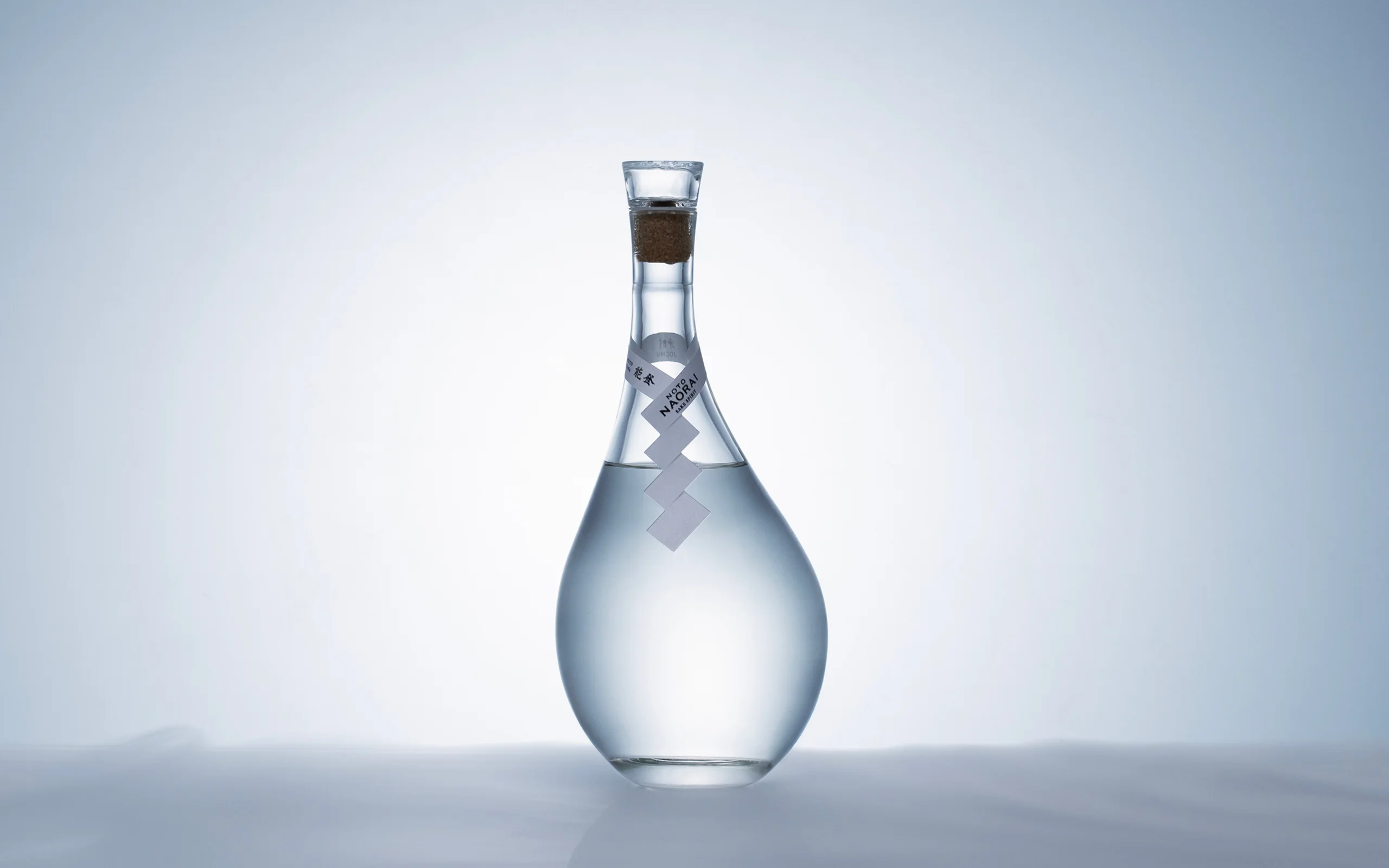
PROJECT
浄酎
地域の日本酒を真空蒸留で再構築した蒸留酒のデザイン。洗練されたボトルやブランディングによって国外のアワードを多数受賞。
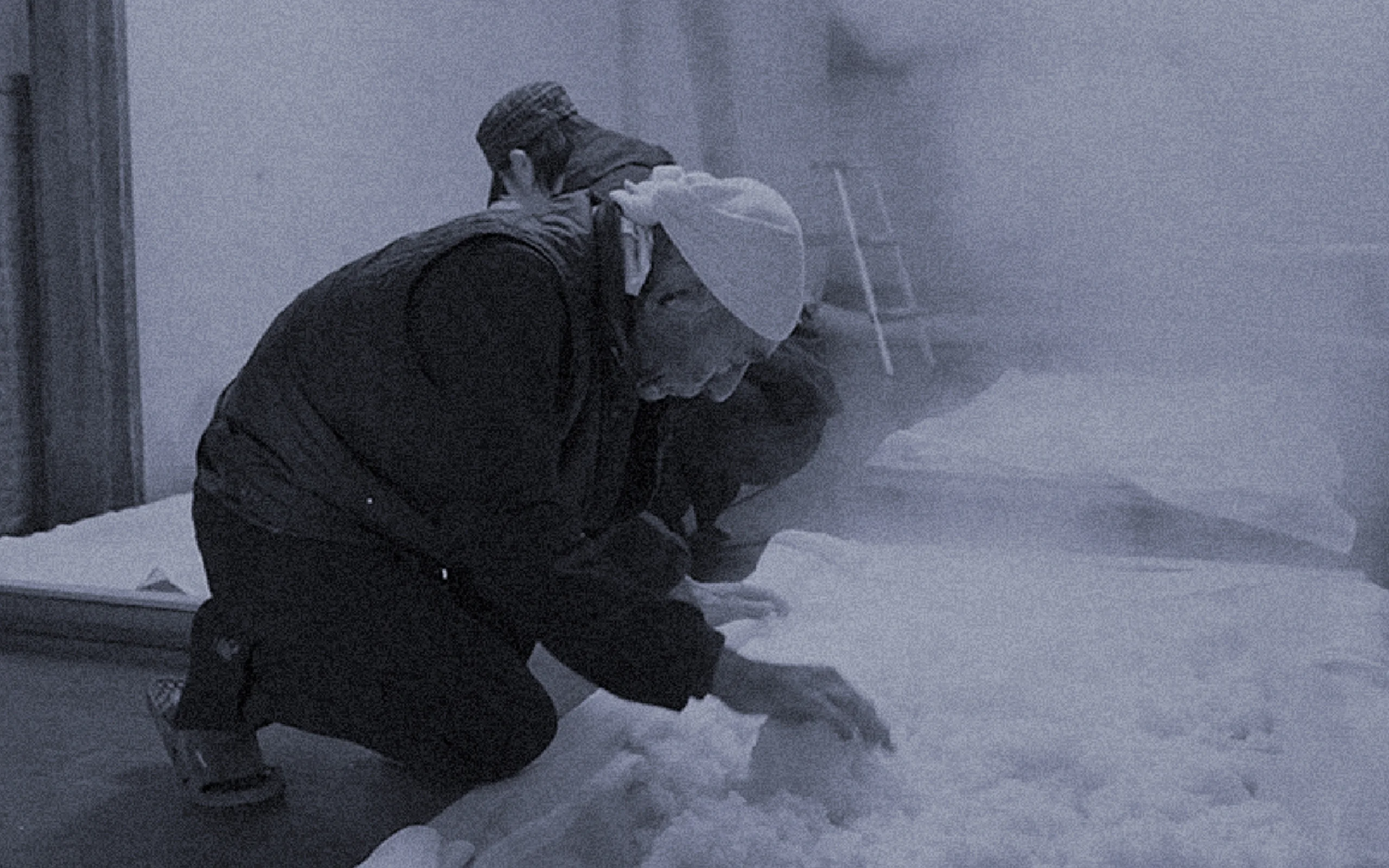
WHY
日本酒産業は、
未来に存続できるのか?
日本酒は古来から日本人の信仰と密接な関係を持ち、人と神々をつなぐ存在として扱われるなど、我が国の文化を語る上で欠かせない非常に重要な存在です。いまや「SAKE」として世界的にも知られる日本酒ですが、ワインやビールなどの台頭によって現在の消費量はピーク時の1/3以下にまで落ち込み、日本各地にある酒蔵の数も激減するなど、厳しい現状に直面しています。(
酒類販売(消費)数量の推移
清酒製造業者数の推移
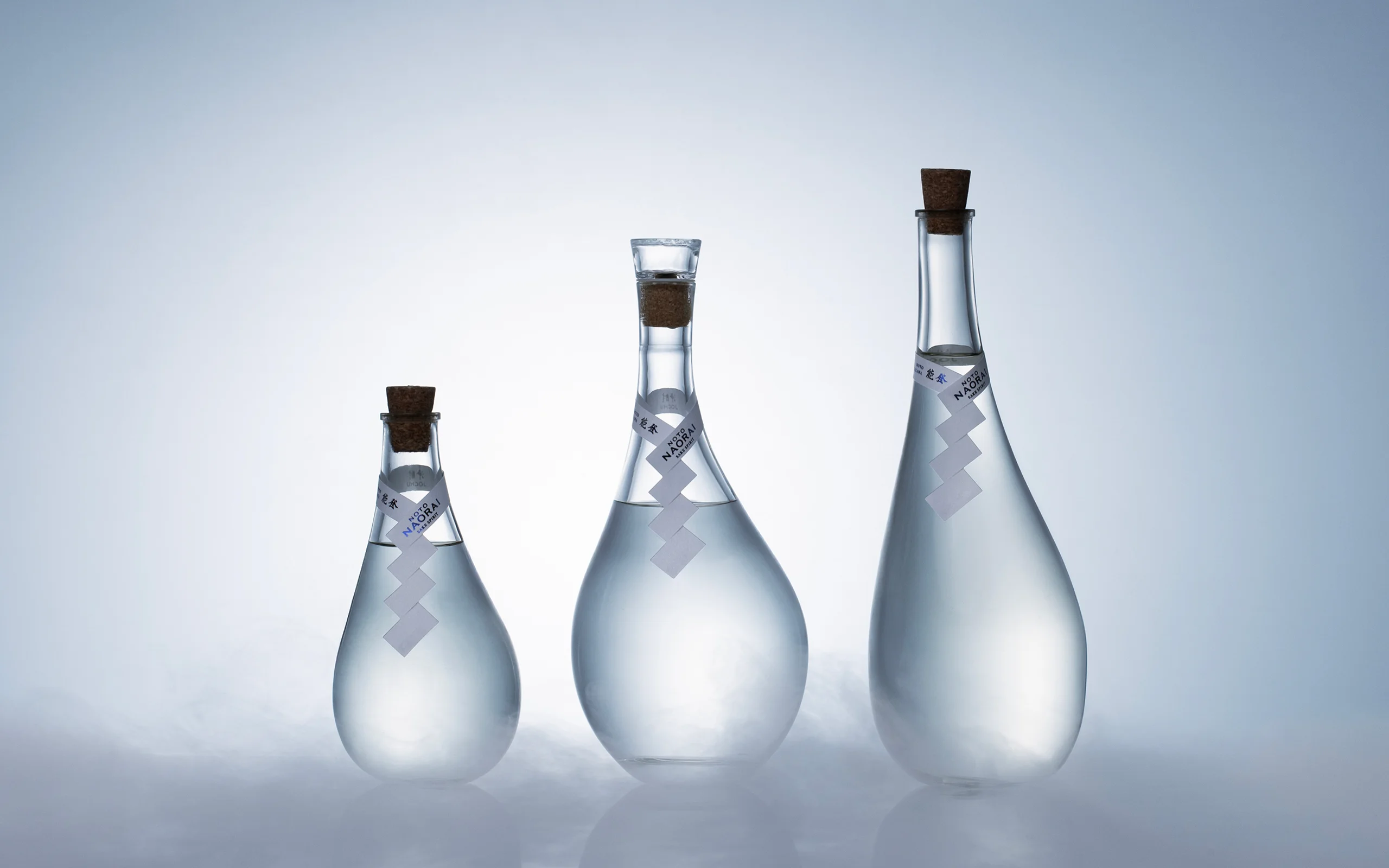

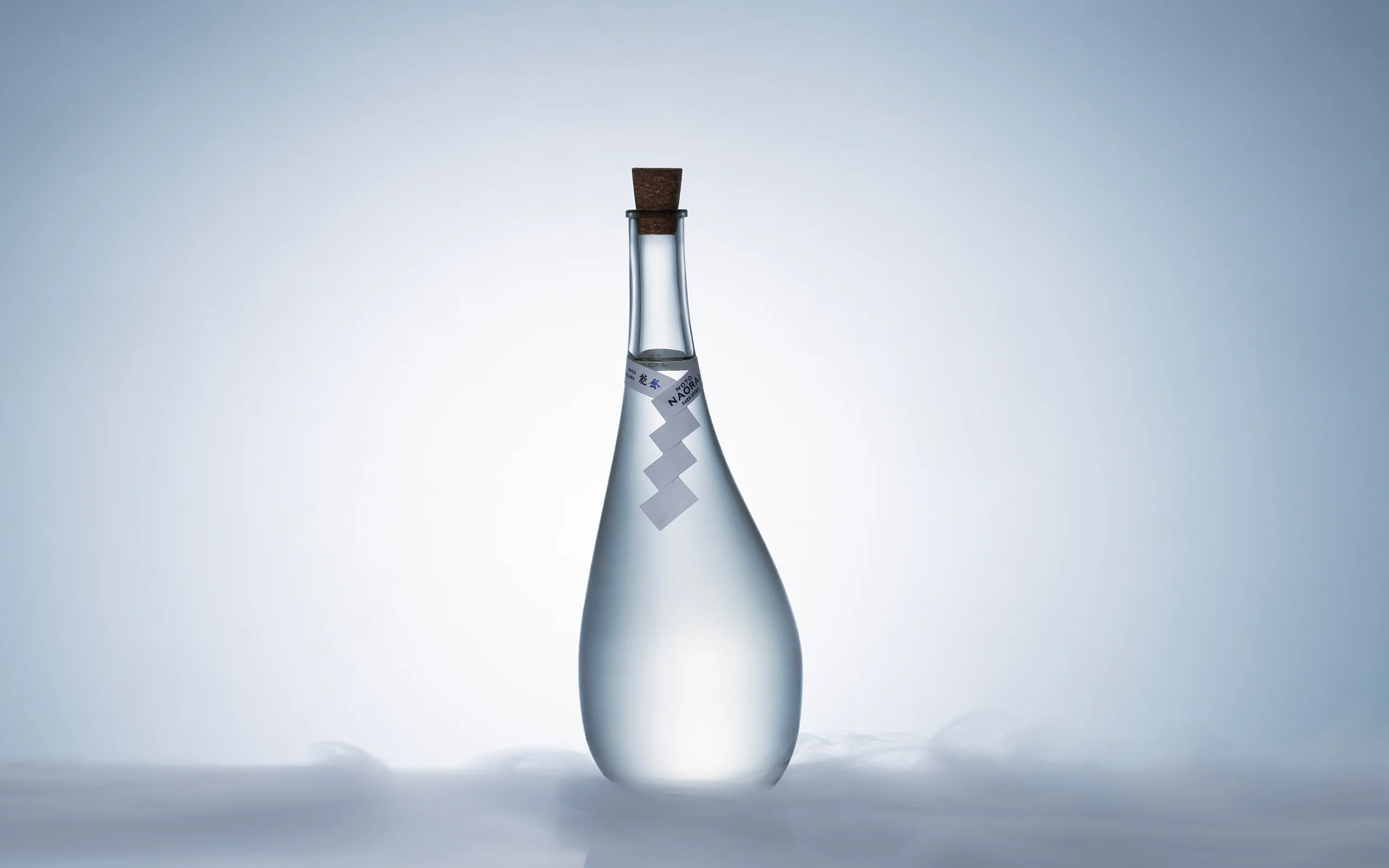
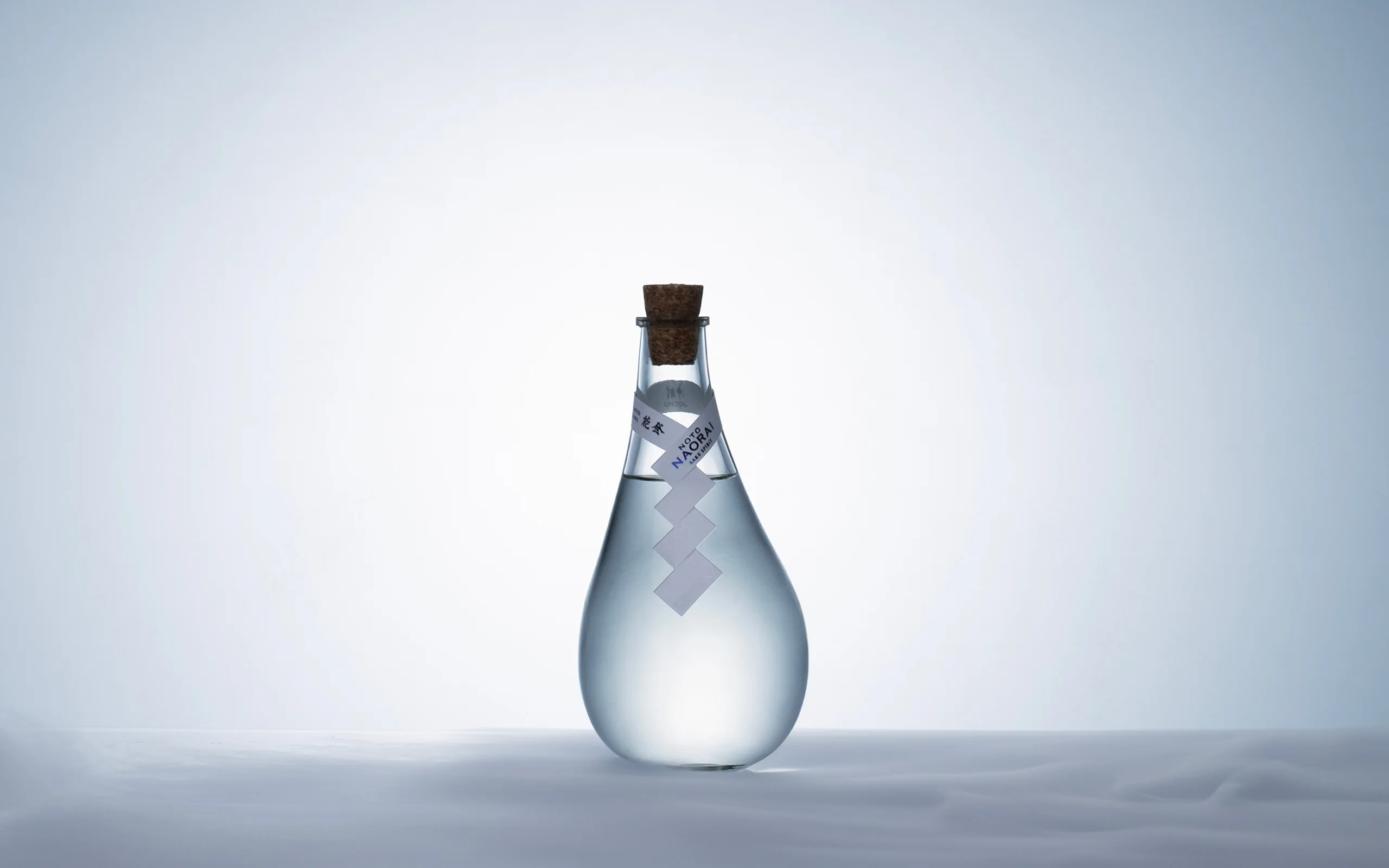
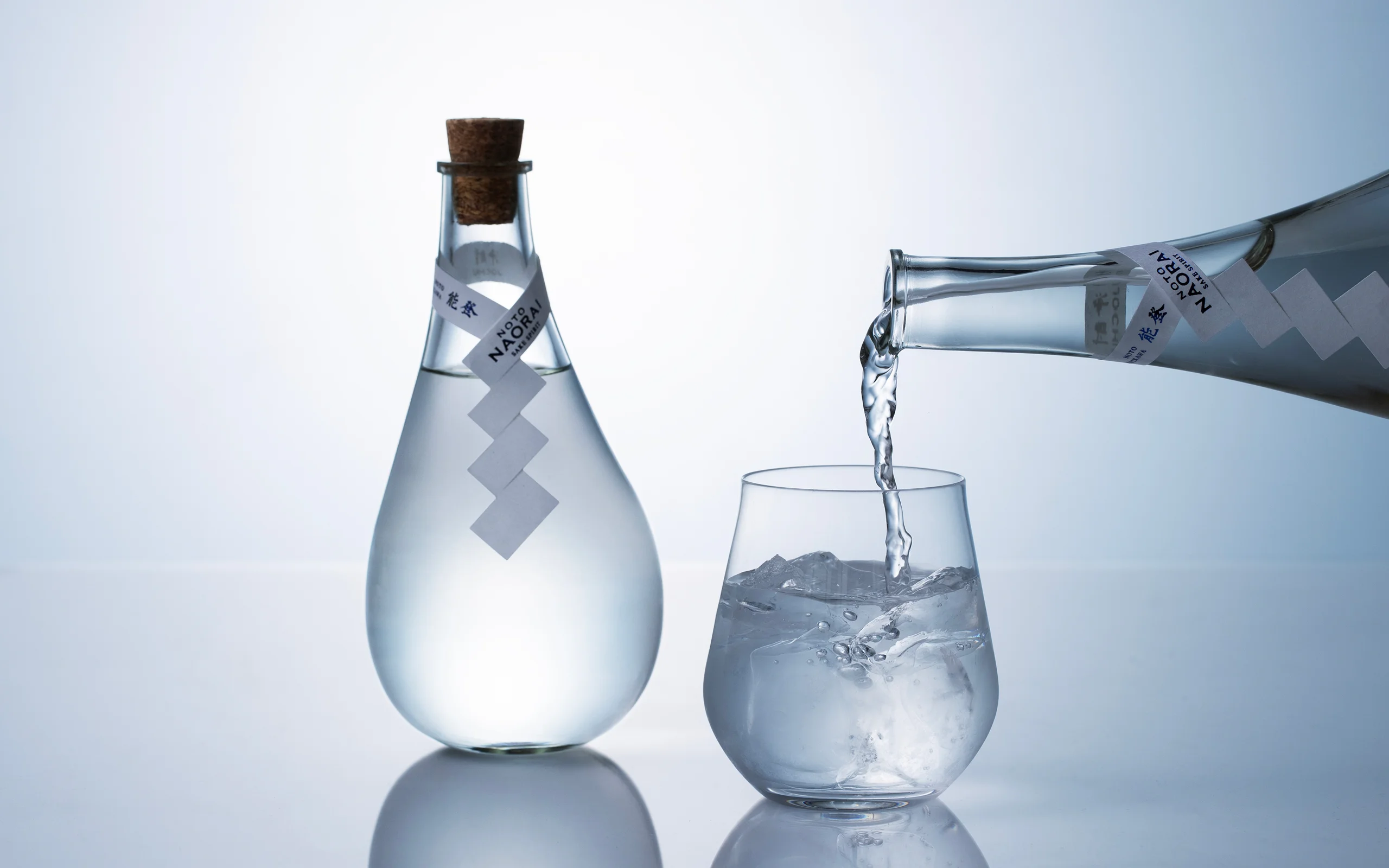
HOW
日本酒でも、
焼酎でもない、
第三の和酒の発明。
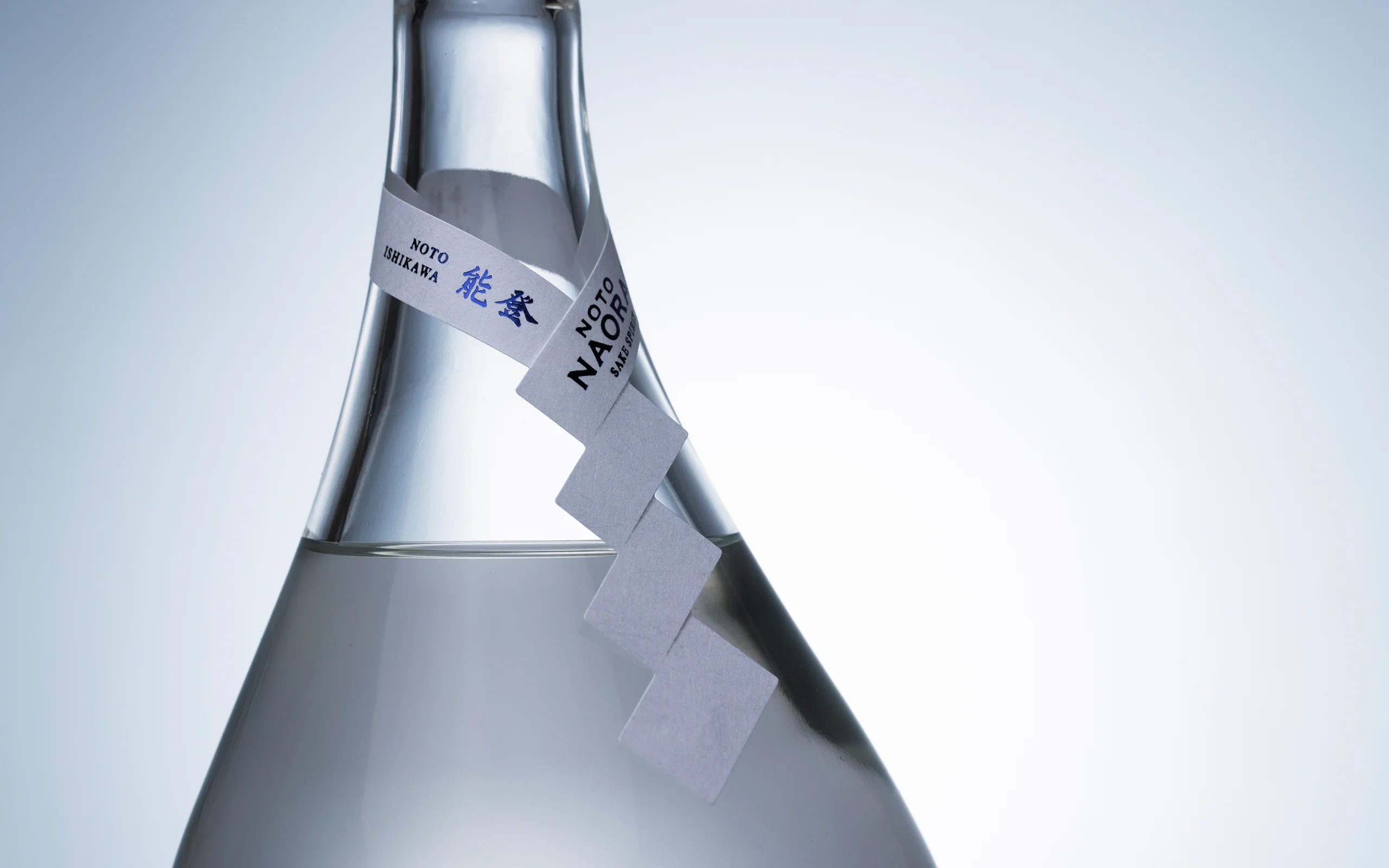
豊かな日本酒文化を未来に引き継ぐことを目指す広島発のベンチャー企業「ナオライ」は、祭りの後に御神酒を飲み交わす行為である「直会」を社名の由来としています。そのヴィジョンに共感した太刀川は、ナオライ創業当初からCDO(最高デザイン責任者)として参画し、第1弾商品となったスパークリング日本酒「MIKADO LEMON」の商品開発時から並走を続けてきました。
その中でナオライは、日本酒を低温で蒸留することで、日本酒特有の旨味や風味を損ねず、さらに日本酒の課題であった品質の劣化も防ぐ「低温浄溜」というまったく新しい製法を見出し、日本酒でも焼酎でもない、「第三の和酒」を発明するに至りました。
通常の蒸留酒(=スピリッツ)は、醸造酒を蒸留器で加熱し、蒸気を冷却することで液体に戻すという製造プロセスが取られます。しかし低温浄溜では非加熱による蒸留が行われるため、日本酒の風味、いわば魂(スピリッツ)を残したまま蒸留酒にすることができます。私たちは低温蒸留のプロセスを、神道の祈りにおける重要な概念である「浄化」と重ね合わせ、日本人に馴染み深い蒸留酒「焼酎(しょうちゅう)」の音感を残した「浄酎(じょうちゅう)- Purified Spirit」を新たな酒の名称として考案しました。
ボトルデザインにおいても、神道の祈りの本質を表現するモチーフとして、神社でしめ縄などに垂らされ、聖域を示す印や祓具などの役割を持つ「紙垂(しで)」をあしらっています。また液体の張力が生み出す自然のままの形を再現したボトルの形状にするため、水を入れた風船の形をトレースすることで、浄化されたピュアなアルコールの水滴が落ちる瞬間を表現しています。
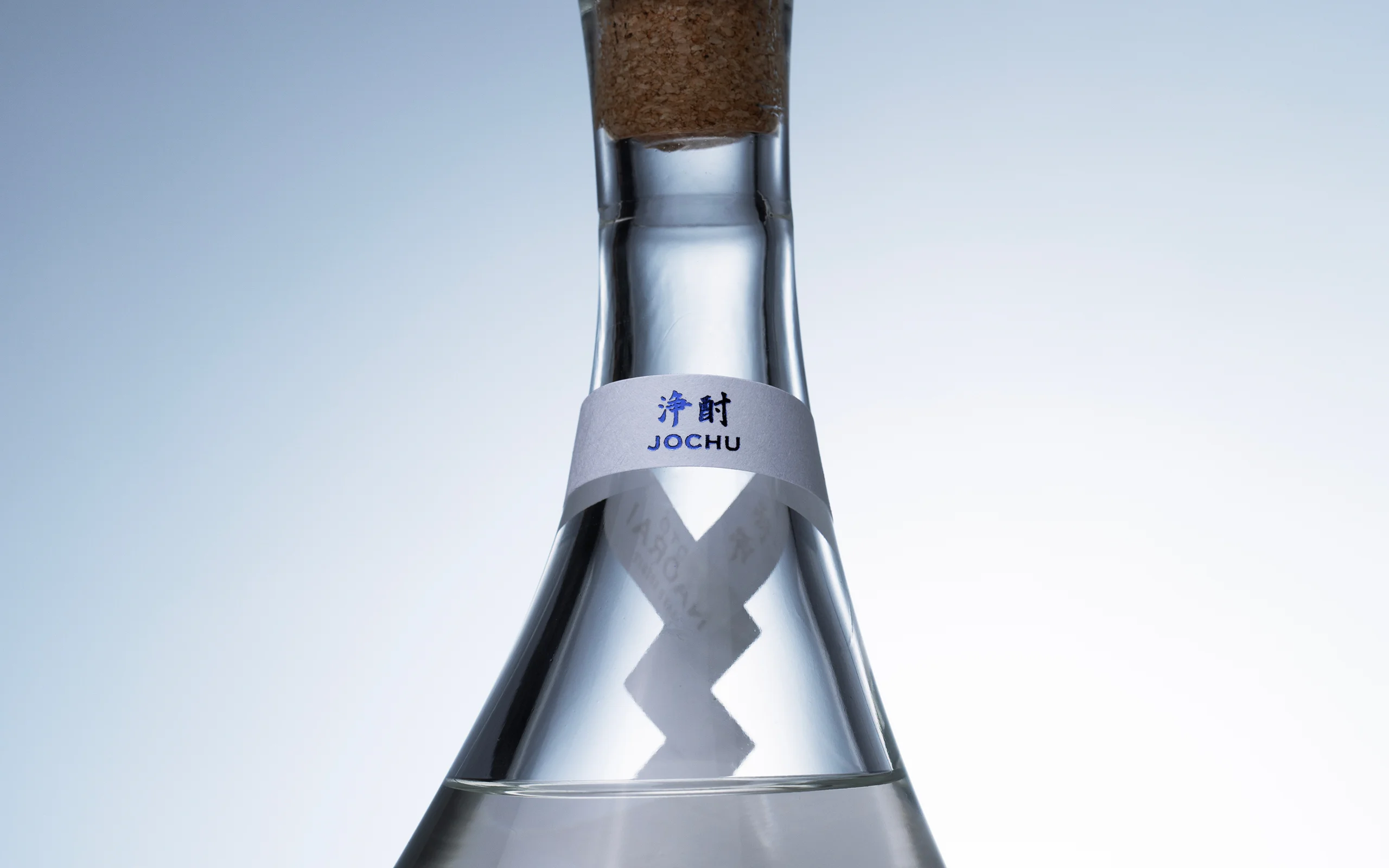
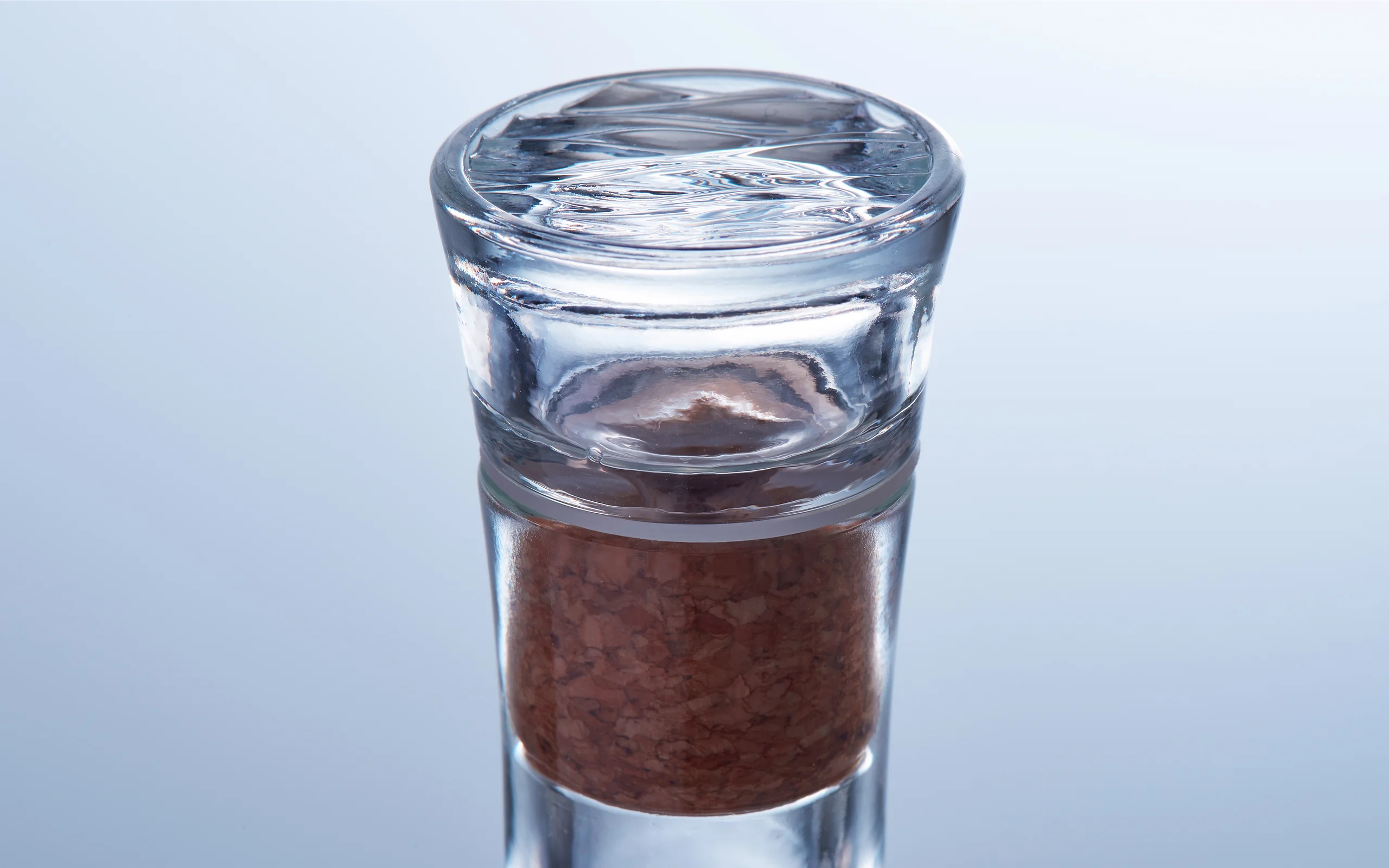
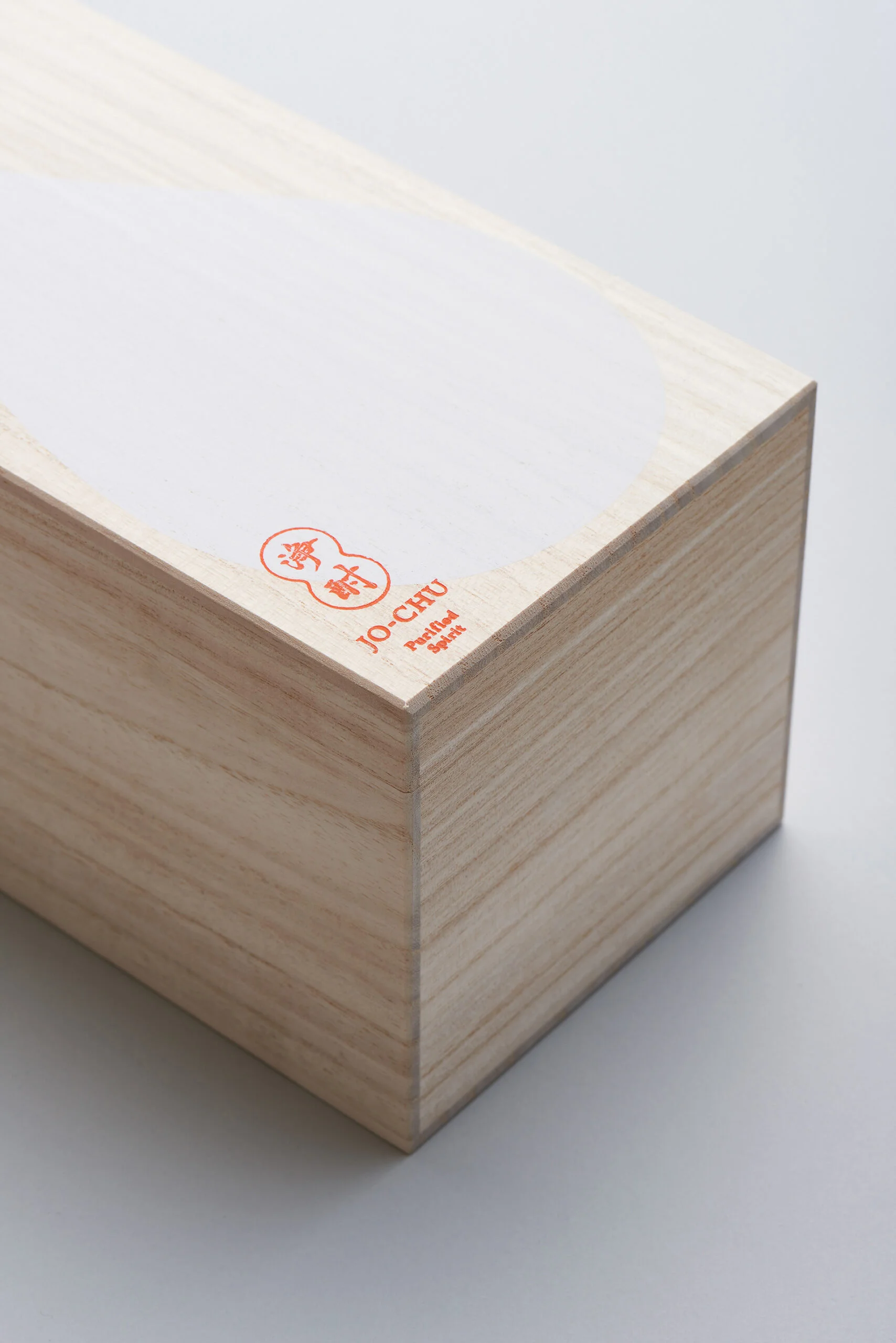
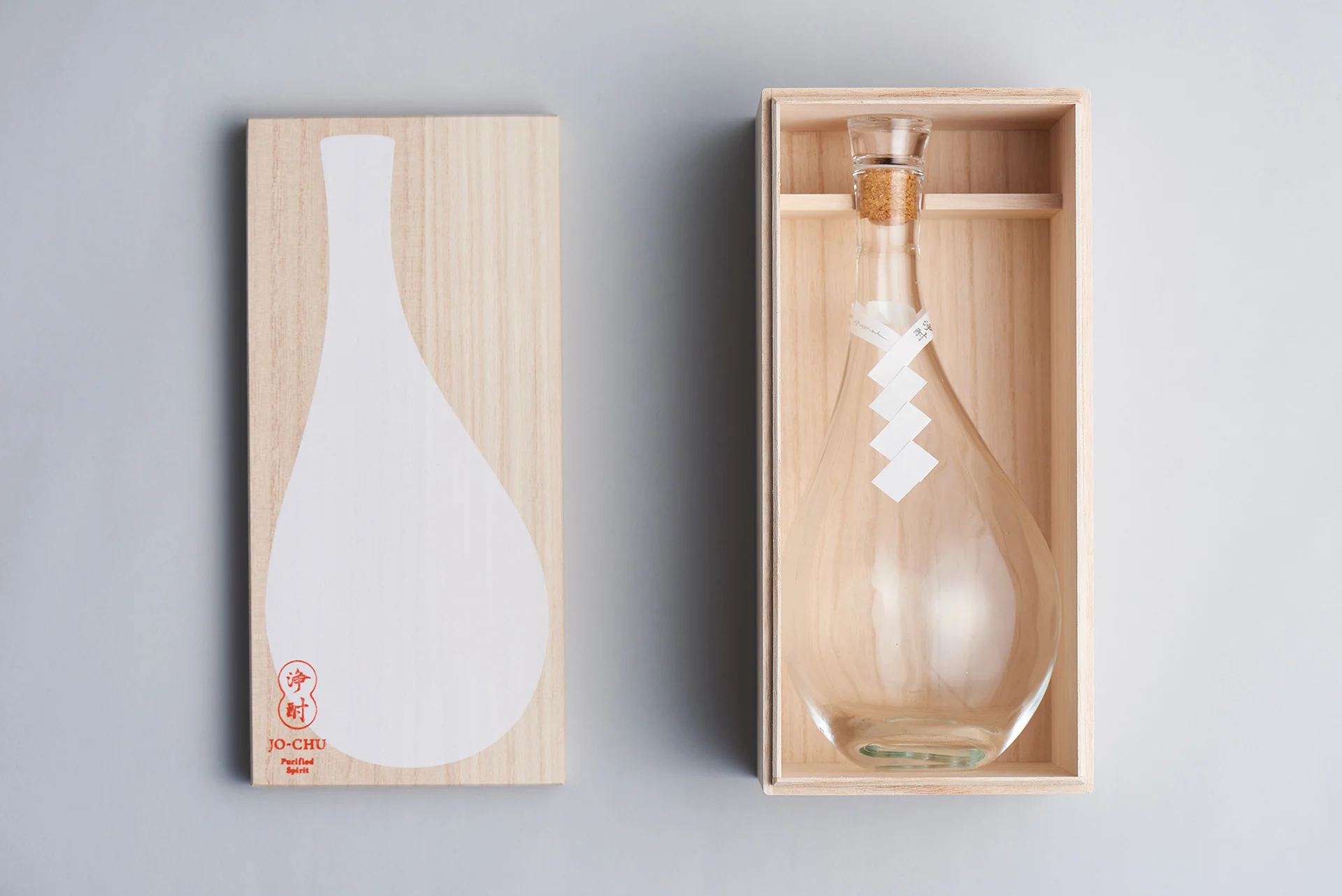
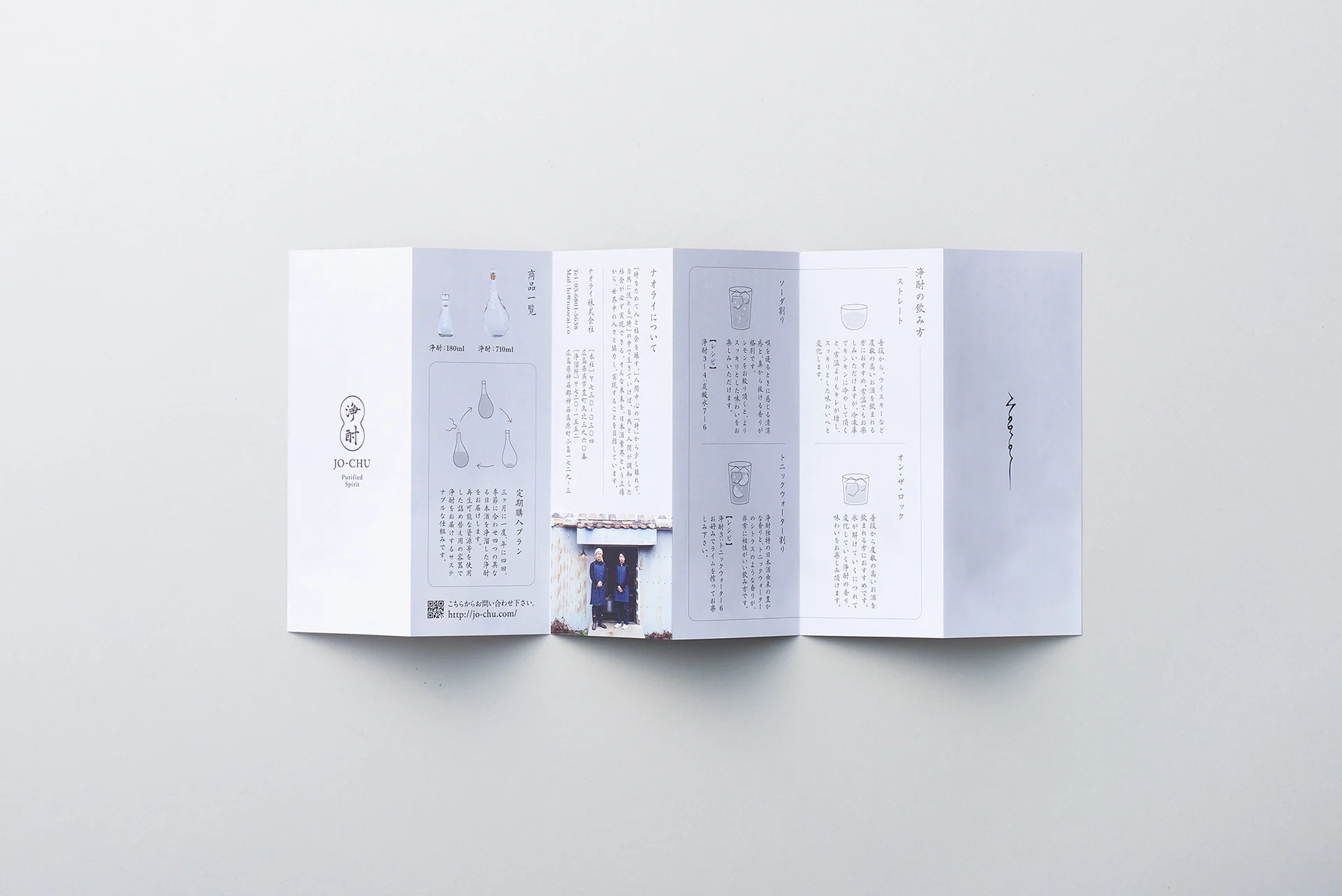
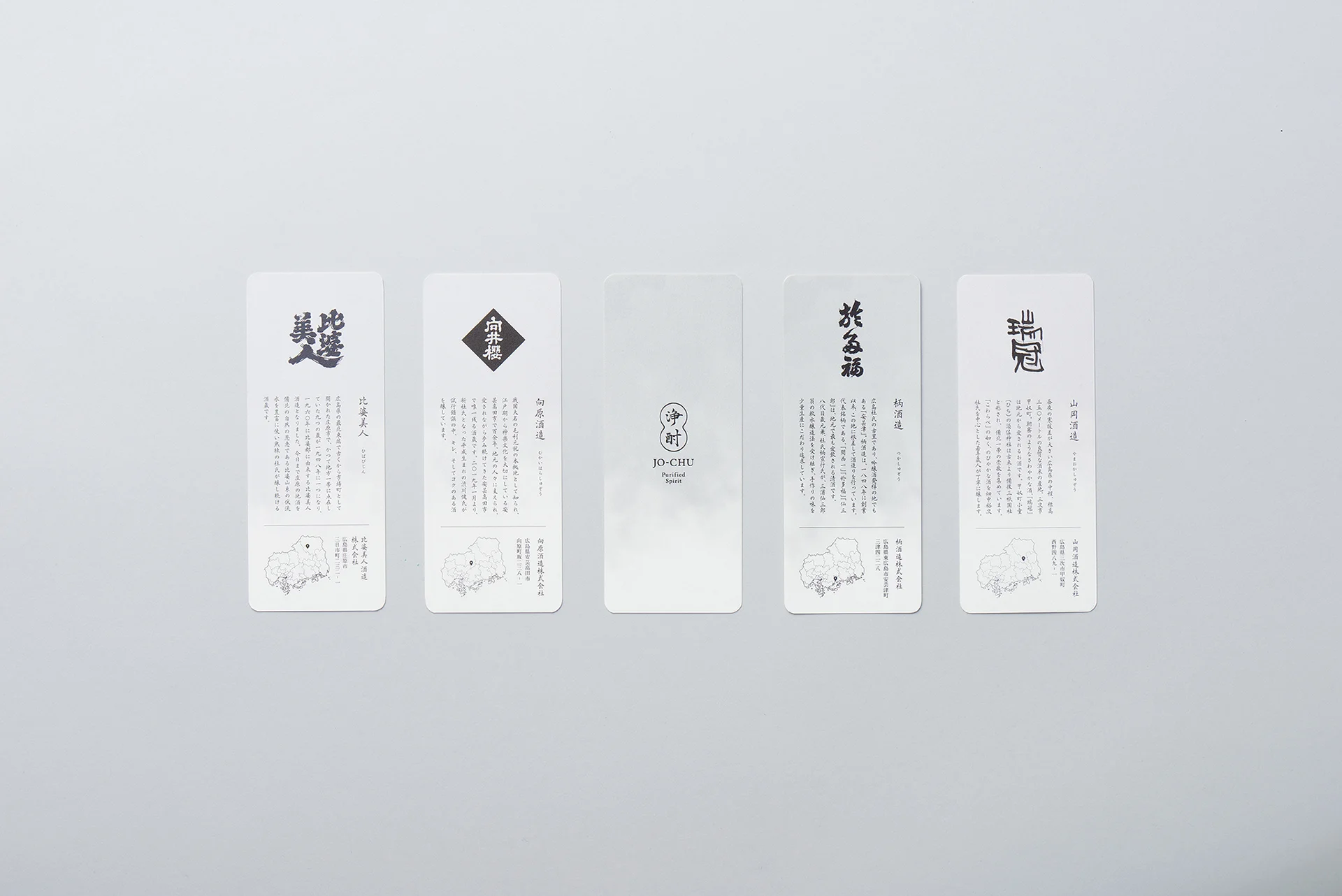
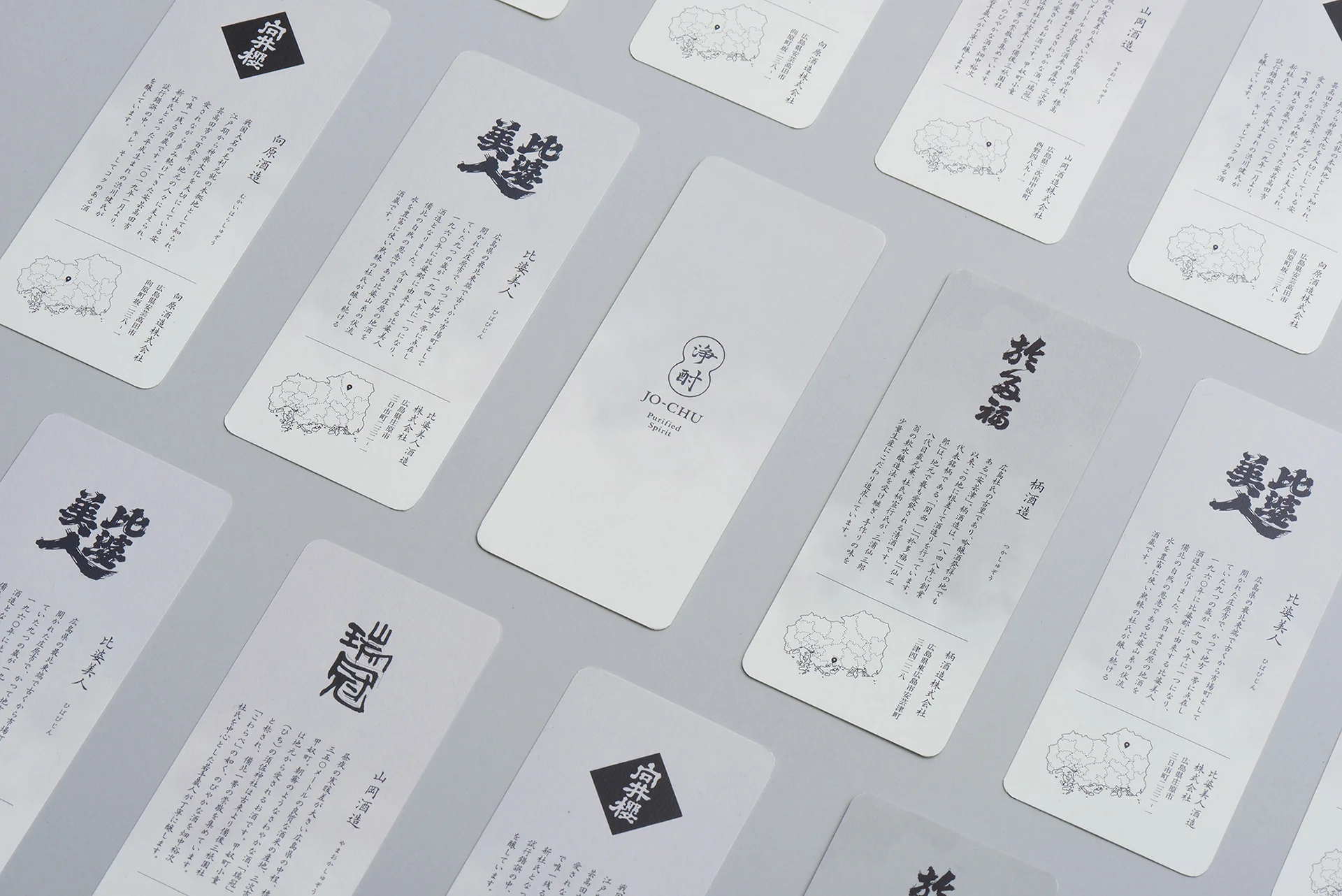

WILL
日本酒産業の新たな
可能性を開拓する挑戦者。
2019年にクラウドファンディングサイトで行われた浄酎の先行販売では、目標金額をはるかに上回る支援が集まり、日本の酒文化を更新する存在として注目されるようになりました。さらに2021年には、自社農園で栽培したオーガニックレモンの皮で浄酎を香りづけし、オーク樽で熟成させた新商品「琥珀浄酎」を開発。世界的な酒類品評会である「International Spirits Challenge 2021」では、「浄酎」が銀賞、「琥珀浄酎」が銅賞に輝きました。これからも「浄酎」を日本酒、焼酎に続く第三の和酒として、国内外に日本の酒文化の魅力や新たな可能性を発信していくために、さまざまなチャレンジを続けていきます。
現在ナオライは、日本各地の酒蔵に向けた「浄酎づくり」という新しい選択肢の提案や、近隣の生産者とともに推進するオーガニックレモンや有機米の栽培など、自社の酒造りにとどまらない活動に取り組んでいます。これからも私たちはナオライとともに、酒造業界や地域社会、自然環境などお酒を取りまくあらゆる生態系を持続可能なものにしていくための挑戦を続けていきます。
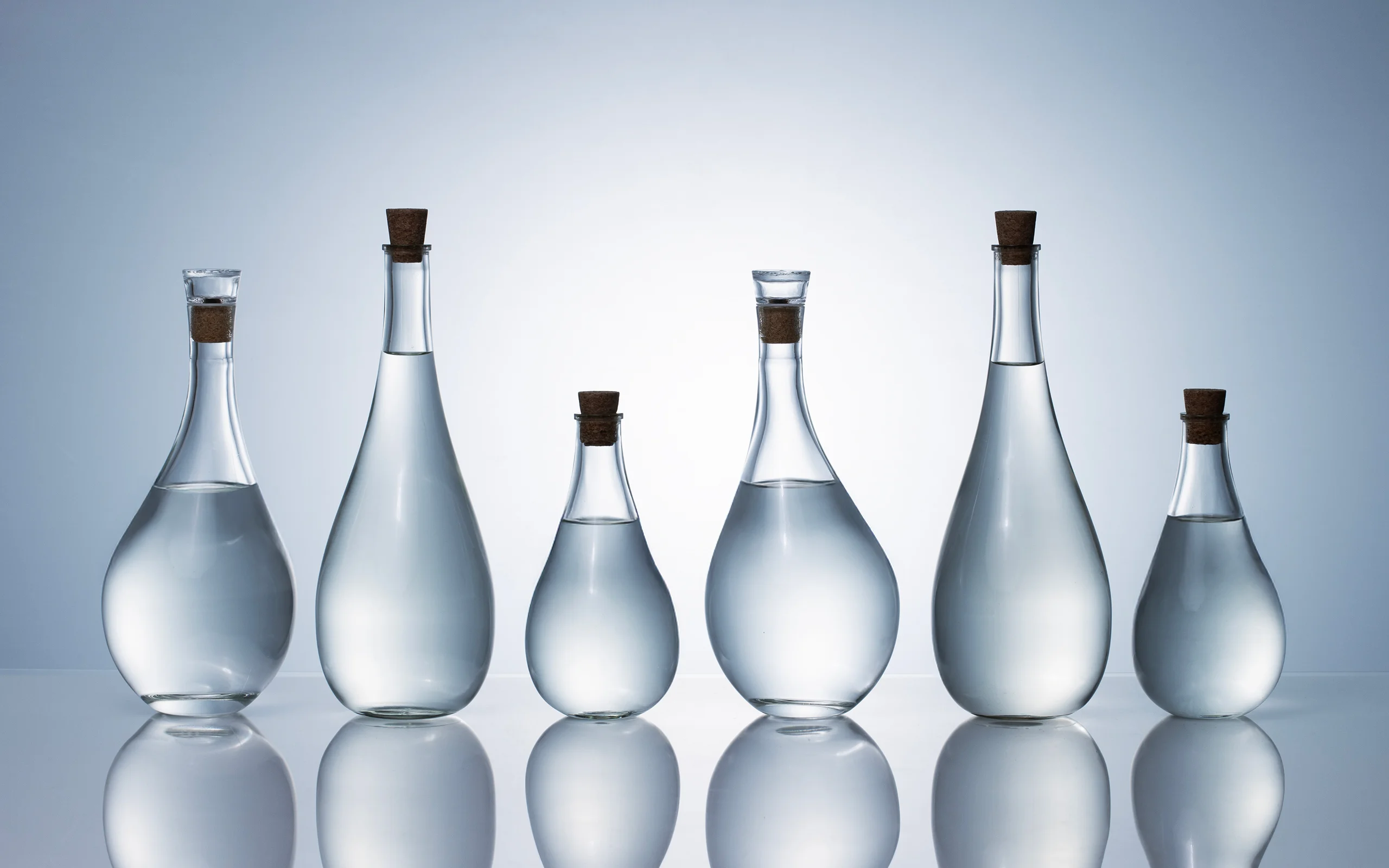

INFORMATION
- What
- JO-CHU
- When
- 2019
- Where
- Hiroshima, Japan
- Client
- Award
- Pentawards: SILVER AWARD (2021)
- DIA: HONORABLE MENTION (2022)
- Sliver A’ Design Award in Packing Design Category (2024)
CREDIT
- Art Direction
- NOSIGNER (Eisuke Tachikawa)
- Graphic Design
- NOSIGNER (Eisuke Tachikawa, Ryota Mizusako, Jin Nagao, Aya Sakurai, Tomoko Tezuka)
- Product Design
- NOSIGNER (Eisuke Tachikawa, Daichi Komatsu, Mahiro Kobayashi)
- Web Design
- NOSIGNER Eisuke Tachikawa, Ryota Mizusako, Jin Nagao, Kazuki Mori)
- Front End Design
- NOSIGNER (Naoki Hijikata)
- Photograph
- NOSIGNER (Yuichi Hisatsugu), Masaharu Hatta









